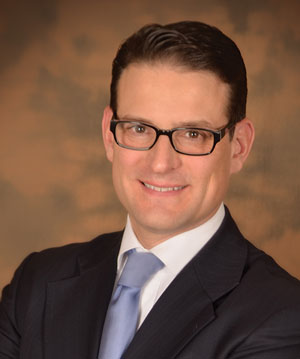
Courtesy Mike Hestrin
After a convincing win that will oust his boss from office in January 2015, Riverside County District Attorney-elect Mike Hestrin is already involved in planning the transition. Asked how he felt about the election results, Hestrin said, “It feels great. Relief is the biggest emotion.”
He said he was not surprised about his win. “We had been doing polling which showed we were up, but the margin was a bit of a surprise. We had a great ground game. My team knocked on 105,000 doors from September [2013] to June,” he said. “What I’m most proud of is the team we had in place. It was a dream team.” Hestrin noted that most of the 12,000 signs put up during the campaign were put in people’s yards. “It was more personal and started the spread of information and conversations about my campaign,” he added.
In his first run for public office, Hestrin said the campaign had made history. “It’s never been done before, where a deputy DA becomes the DA-elect [ousting a sitting DA].” Hestrin said his focus will be readying himself for his new job. “I’m reassigning most of my criminal cases so that I can concentrate on putting my team together during this transition.”
Hestrin now pivots from campaigning to orchestrating campaign themes and fulfilling campaign promises. He said he will be looking at possible budget issues during the transition. “We may need some new resources and we need to be fiscally responsible, but budgeting is about setting priorities.”
Hestrin spoke about his priorities. First is his plan to require all serving attorneys to provide six hours per month of volunteer community service, bringing his department in closer touch with the people it serves in an effort to educate and begin to reduce crime in places it begins.
“We’ll be putting together a nonprofit foundation to build a public/private partnership, using grants and private funds to create community programs that last for generations — mentoring programs for youth and programs that prescreen employers and match them with men and women being released from prison and county jails.” Hestrin noted that recidivism is higher when those released cannot find work.
“For someone coming out of prison, the recidivism rate is 70 to 75 percent if they can’t find employment. With jobs, those rates drop to 50 percent. He said his department would also be working with faith-based organizations and churches to reduce recidivism rates through forming mentor/mentee relationships. “I think the DA needs to lead on these issues,” he said.
Hestrin said he would also revamp the department’s Public Corruption Unit, giving it more independence. “If there are investigations into corruption of elected officials, I’ll turn the initial phases of those investigations over to a team within my department, taking myself and the assistant DA out of the beginning of the process. Those attorneys will be given the authority and empowerment to pursue the investigation up through the phase where I would have to become involved, when the case would be certified to a grand jury.” Hestrin said there is no current protocol in place to create this fair and independent prosecution. “We must have both fairness and the appearance of fairness.” He said there had been problems in the past where investigations did not proceed fairly.
With regard to split-sentencing, a procedure with which he disagreed with current DA Paul Zellerbach, Hestrin said, “I’m not saying split sentences are never appropriate, I’m just opposed to their blanket use.” He noted under present procedures that a person sentenced to two years winds up serving 10 days before being released. “It goes down as a prison sentence,” he said. “But that’s not appropriate for all. There are cases that don’t need to go to jail, low-level offenders that could better be handled through community service programs, home confinement or alternative sentencing, opening the scarce resource of jail beds for more serious offenders.”
Hestrin again emphasized that he intends to set priorities, not just in sentencing policy, but in how his attorneys serve their constituents and in how the department is run as a whole.
He noted that his service in heading the Deputy District Attorney’s Association will help him in heading the department. “I learned a lot about personnel issues and now I’ll be on the other side.” He said he had separated himself from an active role with the association once he began running 18 months ago.
Asked whether this first run for public office might not be his last, Hestrin laughed and mused about why people ever choose to go into public service given the often nasty nature of campaigns. But he quickly returned to what is important for him now in this transition — setting intelligent and appropriate priorities for his office.










